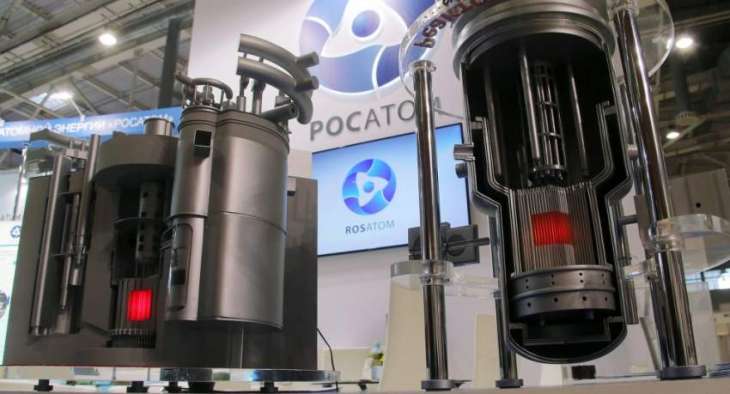Novosibirsk Chemical Concentrates Plant, which is part of Russian state nuclear corporation Rosatom's subsidiary TVEL, has produced two experimental nuclear fuel assemblies with so-called accident tolerant nuclear fuel, the use of which at nuclear power plants (NPP) is expected to contribute to emergencies prevention, TVEL said in a statement on Thursday.
MOSCOW (Pakistan Point News / Sputnik - 27th December, 2018) Novosibirsk Chemical Concentrates Plant, which is part of Russian state nuclear corporation Rosatom's subsidiary TVEL, has produced two experimental nuclear fuel assemblies with so-called accident tolerant nuclear fuel, the use of which at nuclear power plants (NPP) is expected to contribute to emergencies prevention, TVEL said in a statement on Thursday."Experimental nuclear fuel assemblies consist of fuel elements with four different combinations of constructional materials of shell and fuel matrix," the statement read.
The trial samples of the fuel have passed factory performance tests, and have been accepted by the sectoral commission, and they will soon be put into a research reactor at the Research Institute of Atomic Reactors, located in Ulyanovsk Region, for reactor tests.
"After the first stage of reactor tests and post-reactor research, a wide range of works will be carried out to choose an optimal combination of tolerant fuel materials, and to substantiate the neutron-physical characteristics of the water-moderated reactor's active zones ... After pilot production at a NPP, fuel company TVEL will be able to introduce Russian-made accident tolerant fuel to the global market," Alexander Ugryumov, TVEL vice-president for research and development, said, as quoted in the statement.
Work to create an accident tolerant fuel has been carried out worldwide since the accident at the Japanese Fukushima-1 NPP in March 2011. A tsunami caused by a powerful earthquake turned off the electricity supply to the Fukushima NPP's units, the supply of cooling water to the active zones of their reactors stopped, and nuclear fuel overheated. As a result, the zirconium shells of fuel elements were also overheated, and a so-called zirconium-steam reaction occurred. It was accompanied by an additional release of a large amount of heat and hydrogen, which exploded.
Almost immediately after this accident, countries with developed nuclear power industries started working on reactors that would prevent the possibility of steam-zirconium reactions.




